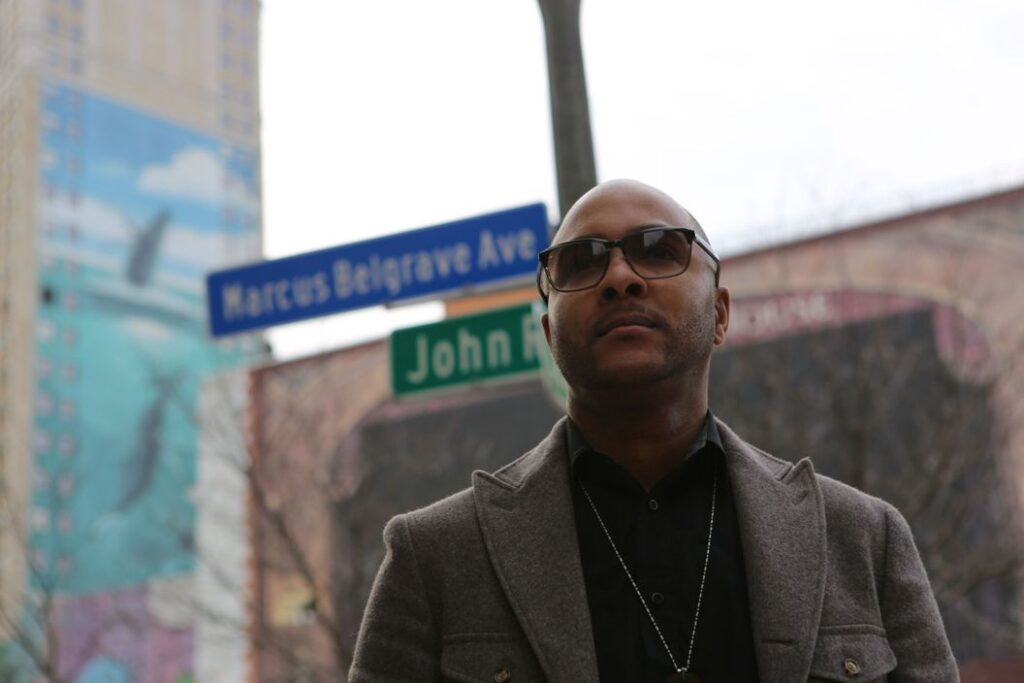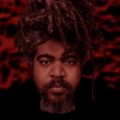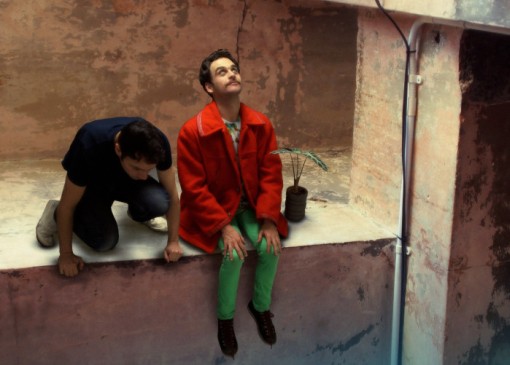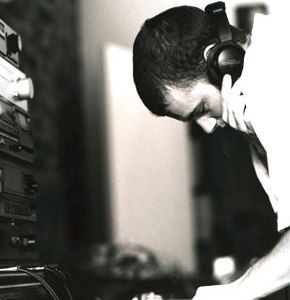
Underground resistance’s Jon Dixon in conversation
Ever since he could remember, Jon Dixon has always had a passion for music. At the formative age of four, he began learning to play music by ear. A challenge he has always enjoyed – especially when it comes to absorbing sounds and being creative.
Since those early years, Jon not only graduated to apply his savoir faire and play keys alongside the likes of Chick Corea, Jeff Hamilton, Robert Hurst and Delfayo Marsalis. His talents have equally seen him rise to the challenge of leading Underground Resistance live acts: Galaxy 2 Galaxy and Timeline – high praise if it were ever needed in Electronic music circles. Having also performed with the likes of the Interstellar Fugitives, Amp Fiddler, Jeff Mills, Mike Banks, Francesco Tristano, Carl Craig, Goldie and more – it really is no accident.
At the age of 15, he began reading and studying classical piano while enrolled at The High School For Fine and Performing Arts where he also studied Jazz. After graduating, he began performing with the Detroit Symphony Civic Jazz Orchestra under the direction of Detroit’s own Godfather of jazz, the late Marcus Belgrave. Through performing locally, he also attended Wayne State University to continue studying jazz piano and as time went on, word began to spread about his talents.
Fast foward to the present day and Jon currently teaches multiple group piano classes at Michigan State University Community Music School. As one of the city’s most sought-after musicians and players who ranges from jazz to techno. His mantra is: the more versatile and open minded you are at your craft, the further it will take you.
Back In 2015, he started his own independent label, 4EVR 4WRD (Forever Forward) to focus on making electronic music fused with elements of Jazz, Hip Hop and other styles. As he states. “I feel that it’s important for me as a musician to not only continue the rich culture and history of both jazz and electronic music. But also use my knowledge, theory and experience to combine the two and take both genres to the next level.”
With the release of a new LP, we were truly honoured to put some questions to him and shoot the breeze….
Hi Jon. Such a pleasure to be in touch! How is life treating you right now?
“Life is treating me good! I’m alive and healthy. Can’t ask for much more than that!”
Enlighten us a bit more about growing up in Detroit and your musical background:
“When I was younger, nobody wanted anything to do with Detroit (artistically). People weren’t flocking to move here and be part of the music scene like they are now. It was a hard city to live in. Hard in a sense that there really wasn’t much to do. Winters were long, wasn’t much to do downtown, yet, if you chose to live here, you had to do something to make it worth while. That’s why a lot of people turn to the arts. It’s the most natural city for birthing creative artists more than anywhere else in the world. My parents’ record collection raised me musically as well as WJZZ Jazz 106, a radio station we had in the ’90s that played some of everything from George Duke to Pat Metheny.”
What sort of influences did you grow up with in your house?
My mom is a visual artist who has no formal training and I think I get a lot of my creative traits from her. She has the ability to imagine, see, then paint it. I’m able to do the same musically. My dad played sax in High School, but was a huge lover of music. A lot of the CDs he had in the 90s I’ll go back now and say, wow, I had no idea he was into Masters At Work back then… I didn’t know who they were at that age.
In what context were you encouraged to enjoy and immerse yourself in music then?
“I was always allowed to like what I liked musically, and artistically for that matter. My parents always supported me. So when it came to music, they always had my back with whatever I decided to do.”
Which was the first instrument you were introduced to?
“Keyboard of course.”
Who did you grow up listening to then?
“Pat Metheny, Herbie Hancock, Return to Forever, George Duke, Miles Davis, Marvin Gaye, Stanley Clarke, Earth Wind and Fire… the list goes on and on.”
And who would you say was the most influential on you as a youngster?
“Pat Metheny! His music was the first time I saw visual images and felt emotions when listening. I had no idea music could make you feel and see things. I’ve been a fan ever since his 1995 album We Live Here!”
How did you end up deciding to study and read classical piano?
“My dad insisted I learn to read music when I was 15. After 10 years of playing by ear, he could see I was becoming more serious with music. I didn’t know it at the time, but had I not taken lessons, I wouldn’t be doing what I am today.”
When and where did you make the leap into Jazz?
“My private piano instructor at the time gave me a book after I mentioned to her my interest in jazz. That began my music reading/theory journey into the genre.”
How did you join and play in the Detroit Symphony Civic Jazz Orchestra?
“My band teacher at the time,Ed Quick encouraged me to join a 2 week summer institute led by Marcus Belgrave. I remember walking in to the room the first day and the musicians were playing some of the craziest exercises I’ve heard in my life. They were all teenagers, but playing as if they were 40plus!”
Tell us about the late and great Marcus Belgrave, why was he such an important figure to you?
“During the first week of camp, Marcus took 30 minutes out of our 1 hour lunch break to work with me one on one. He showed me more theory, comping, and ways to improv around chord changes. Taking the time to sit with me and help is something that’s rare in the world, but he is one of many who has done that for countless others. He was indeed the master teacher!”
How did he shape you and outlook?
“He always challenged me. He wanted me not only to be the best musician I could be, but more importantly, to make sure that when the time comes, I go back into the community and grab the next Jon Dixon and pour all my knowledge into him.”
You went on to play alongside some pretty big names in Jazz such as Chick Corea, which was your most challenging gig?
“I played a masterclass when I was at college, and was one of three selected pianists in the jazz department. That was the most nervous I’ve ever been playing in front of someone.”
When did you get drawn into the electronic music side of things?
“It was the summer of 2007 when I met Mike Banks and a host of others in the UR camp.”
Where were you going to hang out at the time (clubs, record stores)?
“Shockingly, I would go to TV Lounge every Friday with Mike Banks a year later. This was all part of my early education. We would study records that were being played, how people responded to them, what they liked, what they didn’t like, production of the tracks being played… it was all deep stuff. I didn’t know what he was preparing me for, but I guess he did. Al Ester was one of the DJs who would play on Fridays and it was jumping every week!”
Did you have an idea of what sort direction you wanted to take?
“Not a clue hahahahaha! All I knew was, I wanted to make this music and add to its rich history.”
How did you first meet and link up with Mike?
“We met at Submerge in 2007 when they (Galaxy 2 Galaxy) were looking for a new keyboardist. He sat me down at a keyboard, said “play something”. 2 weeks later I’m in Montreaux getting ready to play in Miles Davis Hall. Crazy!!!”
What was it about his mentoring to you that really helped you evolve further?
“Til this day, this one sentence still rings clear ‘I heard that before!’ To hear those words, to work hard on a track only to be told go come up with something else he hasn’t heard before, would discourage a lot. Especially someone who was 24 at the time. I took it as a challenge and eventually his words changed to ‘now you’re on to something’. That’s when the full mentoring came into effect. He wanted me to find me and my sound, not me trying to make what I thought he wanted to hear.”
You’re a teacher yourself, what is the most important lesson we need to hold on to?
“Be yourself and stay true to your art! We have enough copies of other artists in the world.”
As an integral part of Underground Resistance’s musical team since 2007, in what way has it evolved since you’ve been involved?
“UR is always evolving. There are some things that have evolved since 2007 such as the creation of (newer) Timeline l, which I led along my with Mike, DeSean Jones and Mark Flash. At the same time, UR is always searching and looking toward the future. It’s hard to say what is coming next, yet, something is always coming.”
And what does it mean to be part of Underground Resistance in 2022?
“It means a lot. I made it through the boot camp and not a lot of people would. To have the respect of Mike and to have contributed in a way that has affected thousands is special. It’s a badge of honor!”
You started 4evr 4wrd as your own imprint back in 2016, how did you know the time was right?
“The ‘Forever Forward EP’ was the first time I played Mike’s tracks and his words were ‘that’s it!. That’s all I needed to hear. I knew then, it was time!”
It feels like something is stirring deep down in the soulful end of Detroit right now… would you say there’s a pull back towards the roots?
“I think after the last 2 years, we’ve all just dug a little deeper within ourselves and we’re putting all those emotions and all that came with the pandemic into the music. We’ve never held back, but I think now it’s with more purpose and meaning.”
Who should we be looking out for in terms of new kids on the block?
“Heuy Mnemonic, Marquis Johnson, Deon Jamar, Darrius Quince, Room 131, anyone from Detroit who you’ve never heard of pretty much.”
And last but not least, what projects have you got coming next?
“I’m finishing up the next minor Invention EP which will be released late 2022/early 2023 as well as the ‘Vocal Sessions Vol.2’. A new Timeline EP is coming soon. I’ve also got a few other collabs and releases in the works with some amazing people, one of which I’ll mention: Goldie.”
Jon Dixon – Vocal Sessions is out now on 4evr 4wrd




